Quentin Tarantino's Death Proof is often cited as one of the lowest-rated movies of the maverick auteur's filmography. In a 2012 interview with The Hollywood Reporter, Tarantino himself said that "Death Proof has got to be the worst movie I ever did." The second half of the Grindhouse joint-effort with friend Robert Rodriguez failed to resonate among critics as well, garnering a 64% Fresh rating on Rotten Tomatoes.
Tarantino later said that while he "over-tweaked Death Proof" a bit too much, he's still very proud of it. As the film celebrates the 13th anniversary of its theatrical release on July 21, 2020, take a look at these behind the scenes facts about its production.
10 Inspiration
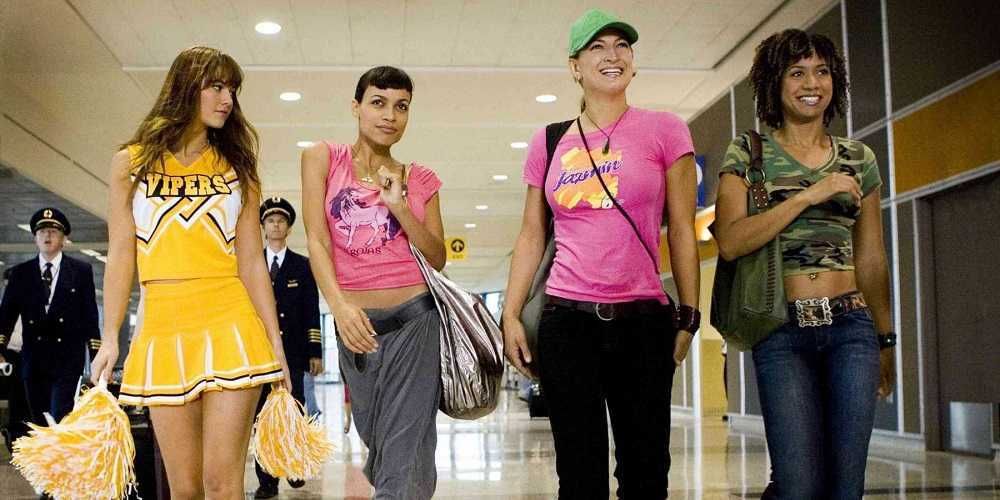
Tarantino got the idea to make Death Proof while enjoying a night of drinking in a hotel with his friend Sean Penn. Tarantino voiced his desire to purchase a Volvo, noting how reputable the brand was for its safety. Penn had a better idea.
Penn told Tarantino that for a price of $10,000 or $15,000, he could hire a stunt crew and they could "death proof" any car for the director. Tarantino loved the phrase "Death Proof" and decided to write a script around the idea. That said, the original title of the movie was Quentin Tarantino's ThunderBolt, which actually flashes on the screen for a few frames of the final version.
9 Casting Stunt Man Mike
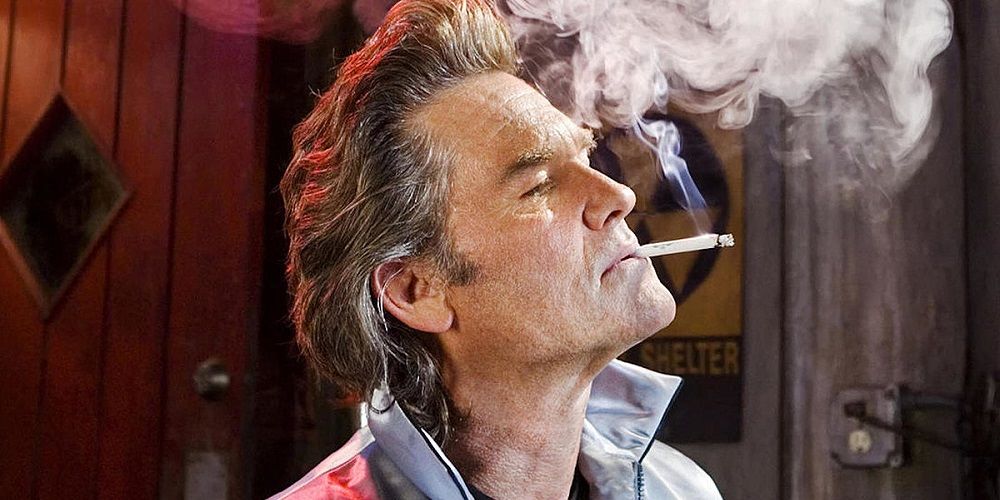
Several high-profile movie-stars were up for the role of the iconic Stunt Man Mike before Kurt Russell was cast, among them, Mickey Rourke, Sylvester Stallone, Ving Rhames, John Travolta, Willem Dafoe, John Malkovich, Bruce Willis, Ron Perlman, and Kal Penn.
In addition, Australian actor John Jarrat was heavily considered for the role after Tarantino saw and loved him in the 2005 horror film Wolf Creek. In a shoutout to that film, Mike crashes into a drive-in theater sign advertising Wolf Creek.
8 Visual Aesthetic
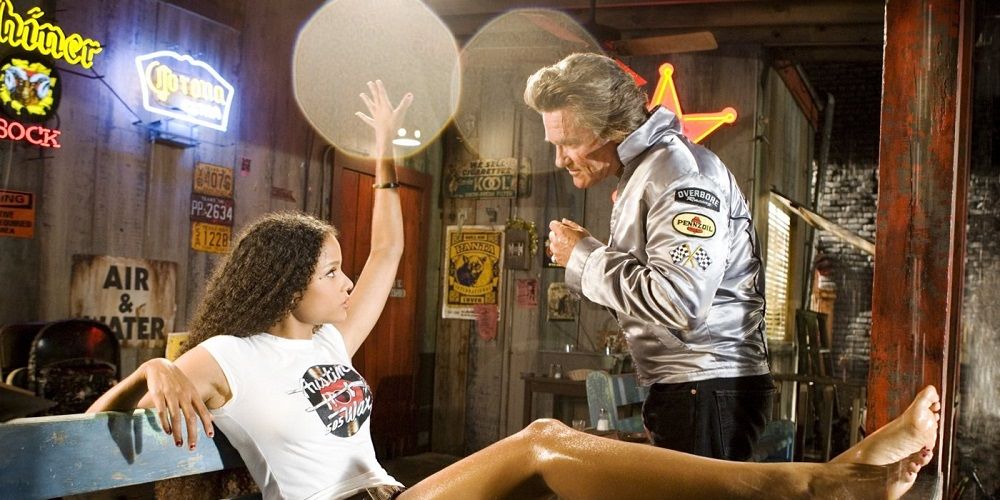
True grindhouse movies of the late-60s and 70s often featured extremely grainy and scratchy film stock, usually resulting from a low budget, rushed production, and limited resources. To recreate the authenticity of this visual aesthetic, the film negatives for Death Proof were physically scraped and scored to make the images appear dirty and unpolished.
Tarantino goes so far as to even drop a scene from the film, which was common for the cheaply made grindhouse movies from the era that he attempts to recreate in Death Proof.
7 Movie Homages
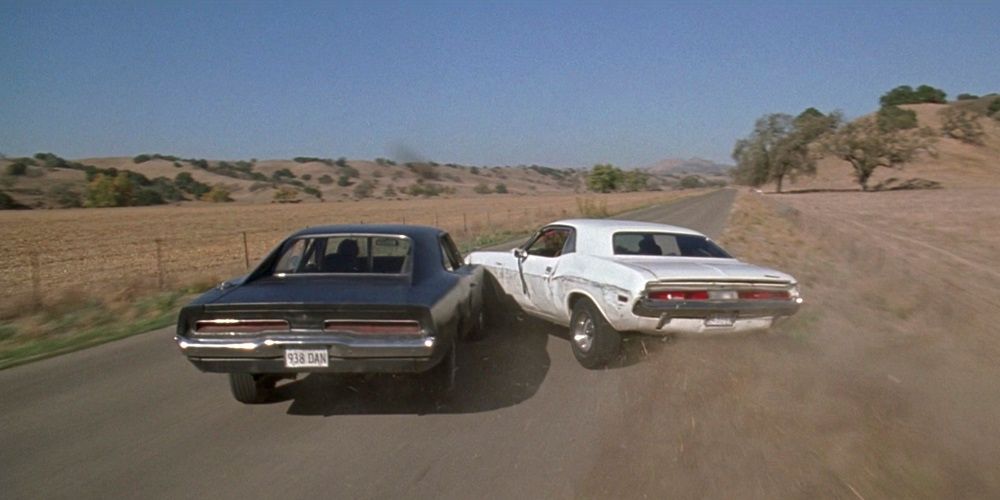
As per usual in a Tarantino flick, several references to beloved movies and TV shows of yore can be spotted. In the case of Death Proof, Tarantino pays homage to several car-racing road-movies which inspired the second half of Grindhouse.
For example, Stuntman Mike's 1970 Chevy Nova features the same license plate number (JJZ109) as Steven McQueen's Mustang Fastback in the movie Bullitt. On Mike's 1969 Dodge Charger, the American Racing vectors wheels on the car are the exact same as seen on the "General Lee" in the TV series The Dukes of Hazzard and the license plate (938DAN) is the same from the film Dirty Mary Crazy Larry. Also, the 1973 Mustang is the same seen in the original Gone in 60 Seconds and the Dodge Challenger is a reference to the same vehicle from Vanishing Point.
6 Kurt Russell
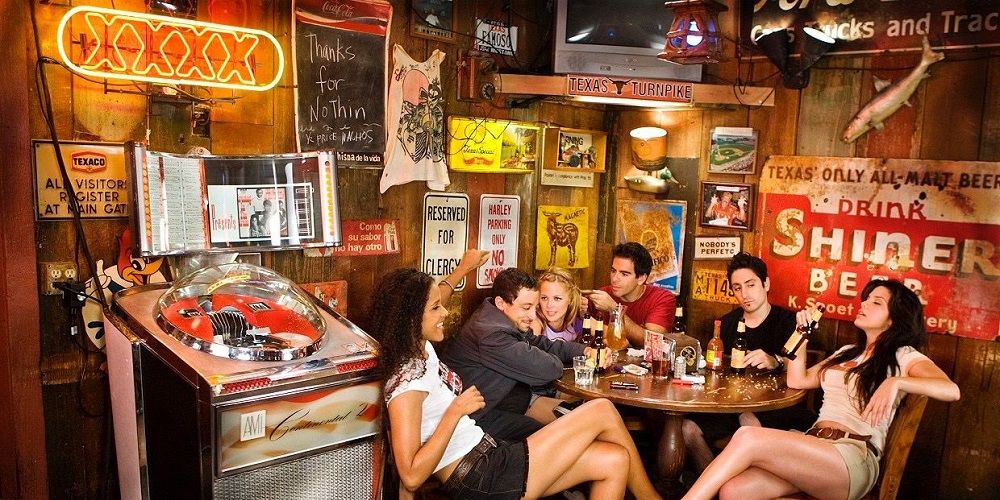
During the scene that takes place in Warren's Texas Chili Parlor in Austin, Texas, several direct references to Kurt Russell's previous work are made.
When Pam (Rose McGowan) sits beside Stuntman Mike at the bar and asks what movies and TV shows he's appeared in during his career, Mike mentions a 1967 TV series called The High Chaparral. In real life, Russell appeared in the 18th episode of season 3 of the series. Also, on the wall directly above Jungle Julia (Sydney Poitier), while sitting at the table with her friends, the iconic tank-top Russell wore as Jack Burton in Big Trouble in Little China is prominently displayed.
5 Deleted Scene
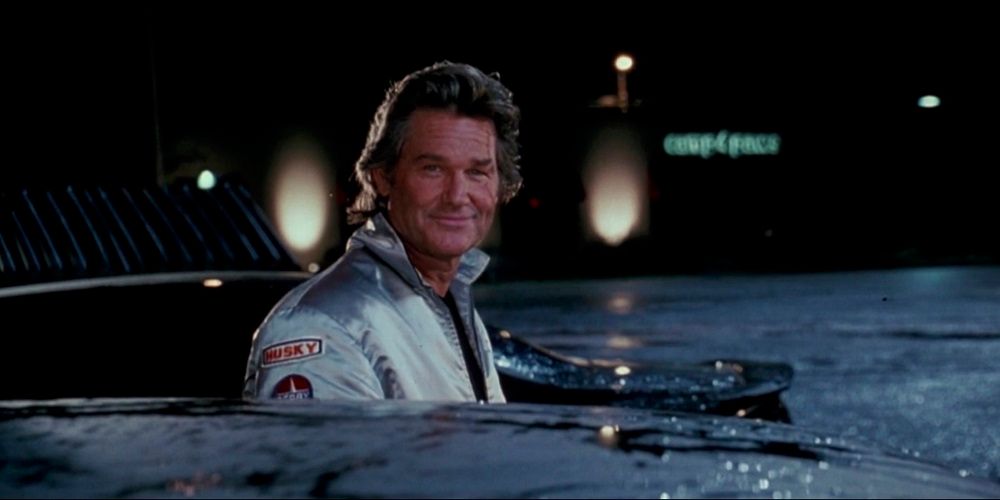
A scene that was shot but ultimately excised from the final cut due to its gratuitous nature featured Stuntman Mike masturbating in his death-proof car after fatally crashing into his first wave of female victims. The implication is that Mike gets sexual gratification from murdering females in his car.
The scene was ultimately cut because of the explanation Sheriff Earl McGraw (Michael Parks) gives immediately after discovering the crash. McGraw intimates that Mike is a perverted psycho who gets off on killing young women in the manner he does.
4 Ami The Jukebox
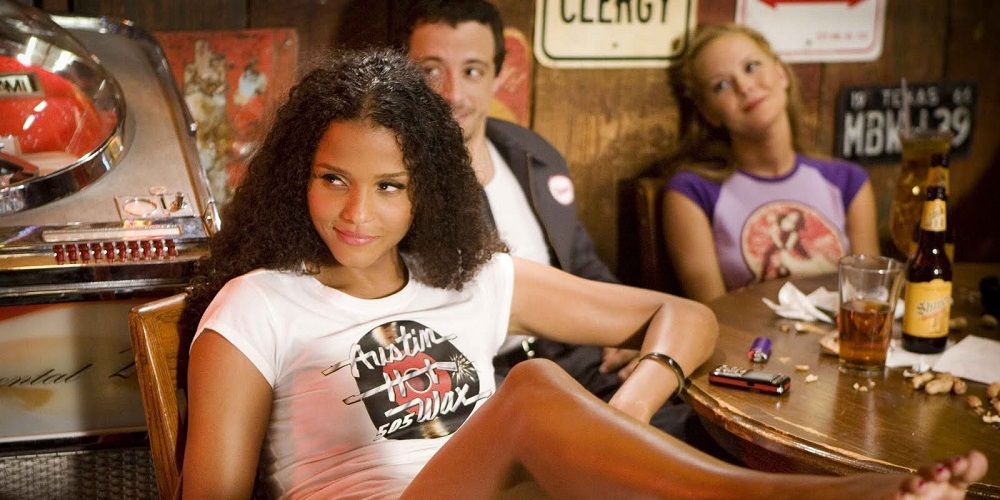
The jukebox featured in the Texas Chili Parlor is the same exact machine used at the beginning of Natural Born Killers, also written by Tarantino. Moreover, the jukebox is named Ami and personally belongs to Tarantino.
For production, the jukebox was shipped to Austin in a custom-made rig. In addition, Tarantino handwrote the list of songs featured on the jukebox, including the iconic Chuck Barry song "You Never Can Tell" featured prominently in the Vincent Vega/Mia Wallace dance scene in Tarantino's Pulp Fiction.
3 Down In Mexico Track
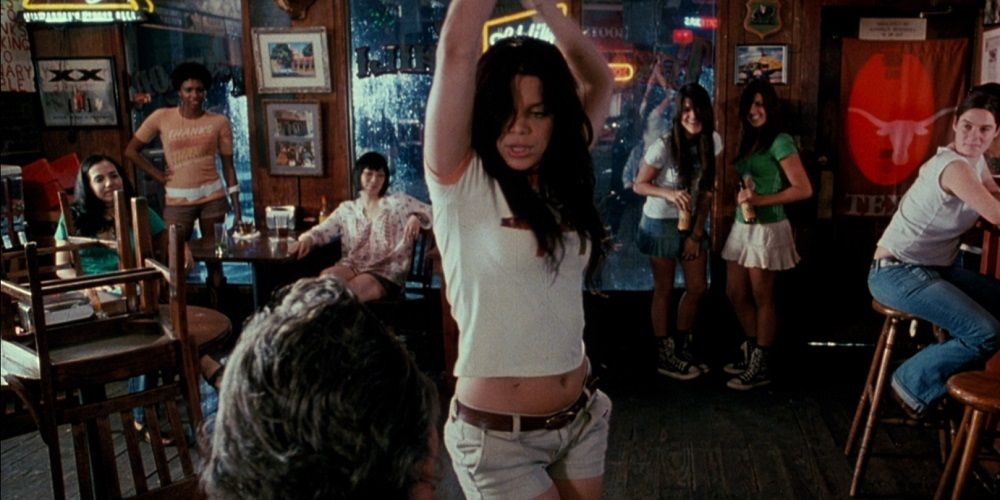
One of the most memorable scenes in Death Proof features a steamy lapdance that is given to Mike by Arlene (Vanessa Ferlito). The song playing in the scene is an altered version of "Down in Mexico" by The Coasters. According to Tarantino, the song is one of the rarest items in his vast music collection.
Tarantino acquired the record as a teenager. While working in an X-rated movie theater, he showed the record to a projectionist who was also an avid music collector. The coworker told Tarantino that the "newly recorded" label on the record meant the item was extremely valuable. The song has since become one of Tarantino's all-time favorites.
2 Zoe Bell's Stunts
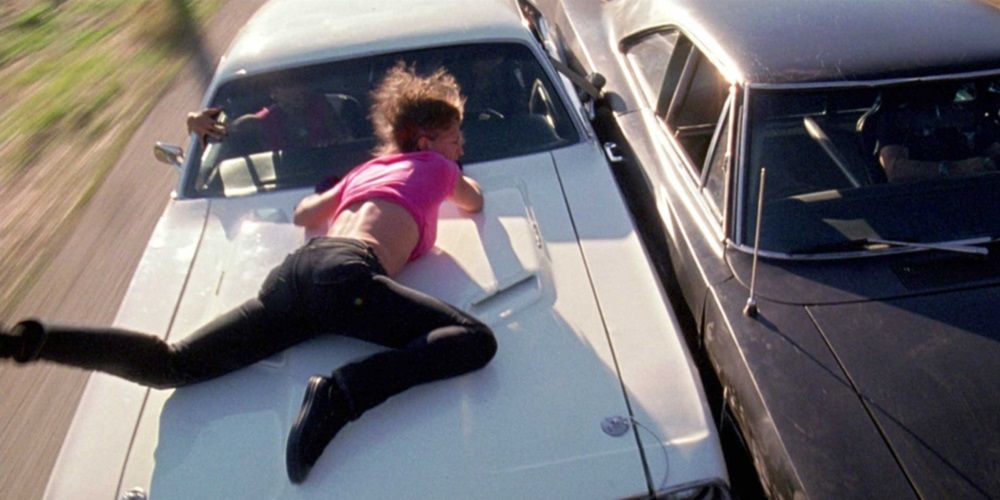
Australian stuntwoman Zoe Bell plays a heightened version of herself in Death Proof. As such, Bell performed all of her own stunts in the film, despite Tarantino's plan to the contrary.
When Bell was cast in the film, she automatically assumed it was a cameo role or to perform stunts as she did standing in for Uma Thurman in Kill Bill. When Tarantino informed her that she'd been given a speaking role, he told Bell that another stunt-double would be used to film her most dangerous scenes. Bell objected, claiming she wanted to do all the stunts and Tarantino agreed.
1 False Advertising
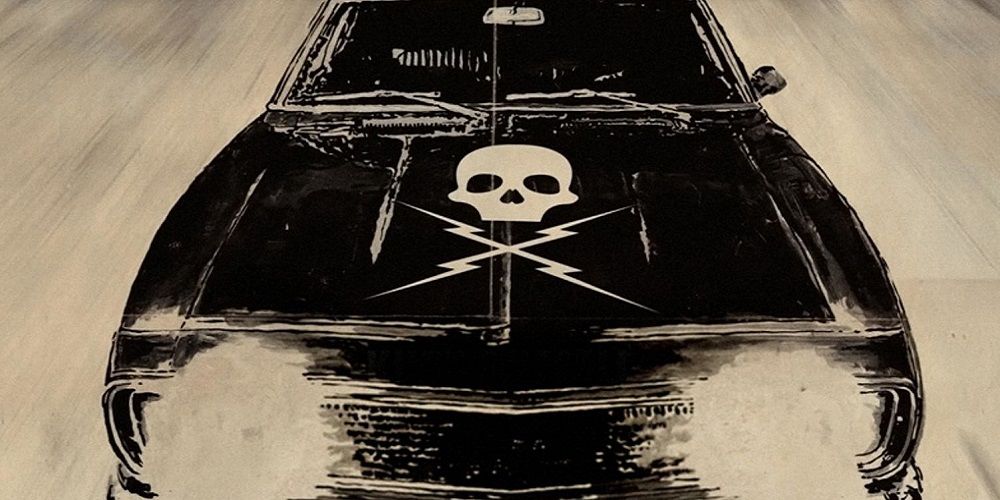
One of the conventions of grindhouse movie marketing was to promise the audience action that never actually appeared in the movie. They would lure you into the movie with one expectation, only to give you another experience altogether.
This likely explains why the posters for Death Proof feature a 1967 Chevy Camaro, a vehicle that hardly appears in the movie at all. The only 1967 Camaro that appears in the film comes after the wreckage of the Dodge Challenger, in which a Camaro is painted white as a stand-in.
from ScreenRant - Feed https://ift.tt/2P0KrIn

0 Comments